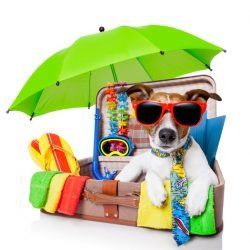December 14, 2018
When you move into a new apartment there’s always an urge to add your personality to the monochromatic environment. As property owners we understand. As rental business professionals, there’re risks involved when tenants want to decorate. Should landlords allow tenants to decorate? If so, what should property management companies allow? Are there any temporary decorating ideas a tenant could use that are inexpensive and safe for the property? Why property management companies shy away from letting tenants decorate, or make permanent changes. Have you lived in a rental property and you thought, “Oh, it would be nice if I had a shelf in the living room to display my decorations.” So, you get the shelf, you find a drill and screws and set to drilling holes only to find you didn’t hit a wall stud and the screw went straight through the drywall. So, you pull it out and try again. The same thing happens. You think the third times a charm and give it a go. Voila, you hit a stud, at least on one side. So, you try the other and you get lucky. You can now hang your shelf. After the shelf is in place, you take a step back to admire your handy work and you see holes. Small screw holes all around your shelf. This is the main concern landlords have when tenants take it upon themselves to make improvements. By not having the knowledge to do the job once, small mistakes are going to happen which could lead to bigger repairs. In our shelf example, when that tenant moves, the painter fills the holes and paints over the area, leaving a blotchy look rather than smooth walls. And this is for a minor decoration. Most property owners allow non-permanent changes with a clause in the lease for remediation. Your lease will probably say you can or can’t make property changes. But, if you do, you need to change it back to its original condition when you moved in. Meaning if you paint the bedrooms blue, red, pink or orange and it started as a white room, you need to paint it white before you move. This is remediation. You may be thinking, “Well landlords have to paint anyway so why would it matter?” It matters because the wear and tear clause in your lease covers normal use. There is no need to paint a room a different color. As a result, this is an extra expense the tenant will have to pay for out of their security deposit. So what are some ways a tenant can safely decorate and still be in lease compliance?




